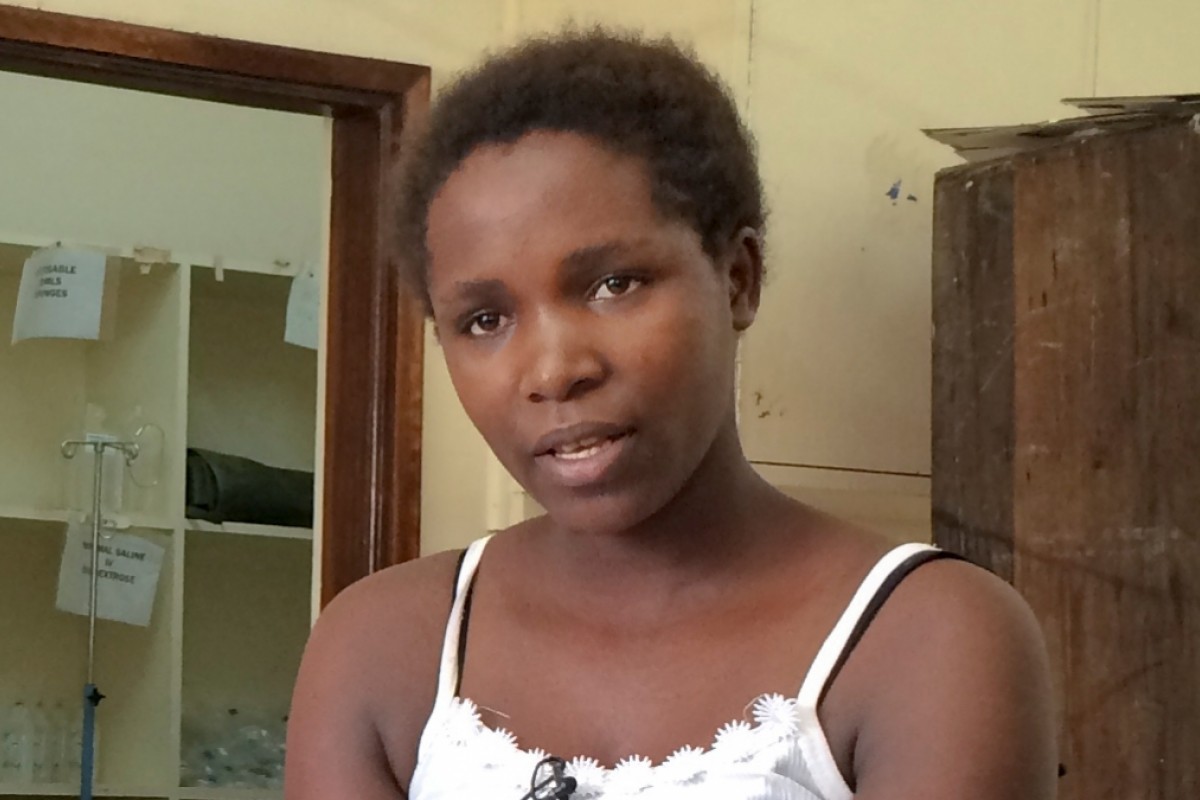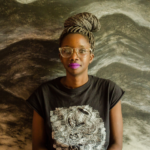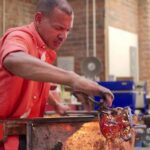It’s been over five years since the Cynthia Cherotich witnessed 142 of her classmates killed by Al-Shabaab terrorits at her univeristy – Garissa University in Northern Kenya.
She survived by hiding in a cupboard under a pile of clothes for two days.
This her story.
‘I had woken up early with my friends to study for an exam. In my hostel we did not have any electricity so we decided to go to the lecture hall. When we got to the classroom we read for a while. Then we heard gunshots. It was just a continuous burst of gunfire. We could see the sparks of the gunfire flying around so we decided to run.
We decided to run to the hostels. As we were running some of my colleagues were falling down because they had been shot by bullets.
When I got to my room, two of my colleagues were there. The others had gone to the bathroom to hide so I asked my friends what should we do? And they said maybe we should hide under the beds. There were three beds so each of us hid under one. We hid there but then the gunmen reached the hostels. The men said that if we were hiding under the beds then we better come out because they’d find us.
They also said they do not hurt women because their culture does not allow them to. They encouraged women to come out so some of the girls came out of where they were hiding.’
Cynthia however refused to come out of her hiding place till she found a better one.
‘I kept hiding under the bed until they said the people hiding under the beds should come out. So I came out from under the bed and I went to hide in the wardrobe. There were some drawers in the wardrobe and in the drawers there were some clothes and shopping items. So I used the bed to climb into the drawer and covered myself with the clothes and the shopping items and then I left the drawer open so they’ll not suspect I was in there.’

Once she was in there, resettled and still, she heard screams and sounds of what was really happening on the ground floor with the other students.
‘The people on the ground floor were separated by the attackers. They separated them into Christians and Muslims. If you were not a muslim you were asked to lie down and if you did not know how to recite the quran, they separated you from the group.
I could hear everything from my hiding place. Even the gunshots. After separating the Christians from the muslims they then told the muslims to go and hide in the mosques. They then shot the Christians and after that they went through the rooms to find people who were hiding.
At this point I was just praying to God to help hide me well so that the attackers would not see me. When they came into my room. They found the two girls that were hiding under the beds and they told them to come out. They told them to get their handbags and clothes.’
It was in this moment that Cynthia’s life paused and she had to do her best performance of being still.
One of my roommates directed the attackers to the drawers where I was hiding to pick up her handbag. So the attacker reached into the drawer and picked up the handbag. He could not see me and in the process he threw a dress over me as he was moving the handbag. Then when the girl had the handbags they were asked to leave the room.’
It was a narrow escape for Cynthia.
‘I just kept hiding there. I didn’t know exactly what was happening. I was in there for two days. I began to become thirsty after a while. There was lotion where I was hiding. Because I was scared to come out of my hiding place to get water, I decided to drink the lotion. First of all, I drank a little bit and when I saw it didn’t have a bad effect on me, I ended up drinking all the lotion.’
The attack was one of the longest moments of her life but eventually help came.
‘I could hear them screaming from outside. I heard the screams of the people who were being slaughtered.I did not hear when the Kenyan soldiers came because they were also shooting. I couldn’t differentiate the soldiers from the attackers because they were all shooting.
I was found on Saturday by the Kenyan police. They started searching the area where I was hiding. They removed the clothes in the drawer and one of them saw me and he told the rest ‘hey, there’s someone here who is still alive’.
So the other people entered the room and they were asking who this person is, are they al-shabab? And they said no, it’s a student. When I turned they were holding their guns out and I could see they were in civilian clothing. They told me to come out, ‘we are Kenyan police’ and I told them no, I know you’re not Kenyan police because Kenyan police wear uniforms.
They decided to go get a police officer in uniform so that I could come out. They brought a police man who was wearing a uniform and I still insisted on not coming out because I thought they were trying to confuse me by making me think that they were real police men. So they decided to go out and get the school’s deputy principal and that is when they brought a professor I knew and I could say yes it is the professor.
When I saw the professor I was happy but I was also in pain because of the position I had been in. I had been bent up in the draw. I was put on a hydrating drip in the hospital. Then when that was done, all the people from the media stormed into where I was.’
Everyone wanted to ask her questions but she didn’t allow them to. All she wanted to do at that moment was to reach out to her family. They thought she was one of the numbers killed during the attack.
‘When I was discharged from Garissa hospital, I was airlifted to Kenyatta hospital and that’s where I met my family and they were crying. They were told by my colleagues that I had just hurt my leg and so they were confused when they saw me with no injury.
They just didn’t know whether I was alive or not. They didn’t know the state I was in, they didn’t know how I was. So when they saw me they were just crying. I cried too, I was crying because I saw my family because they told me they did not expect to ever see me again because I was the last person to be found.’
Cynthia who has since graduated from a university in Italy, after she received as opportunity from the Italian Embassy to continue her education there. It was a collaboration between the Kenyan government and the embassy created for survivors of the attack.
She says she’s ok now but from time to time, though less intense now, the thought of her friends who hid under the bed, pops into her head.
‘I am ok now, but sometimes I have the image of my friends under the bed in my head. It has become much less as time has passed.
It is bad losing your colleagues especially like that, it is very bad. But I have forgiven the gunmen because the bible says forgive your enemies because they might not know what they are doing.’














